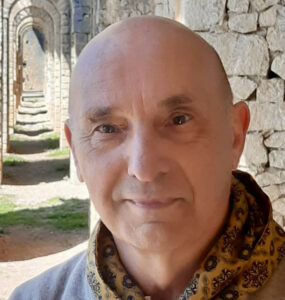On Wednesday 25 June, Harald Hendrix, Full Professor and Chair of Italian Studies, takes his leave from Utrecht University by delivering a valedictory address on ‘Sprezzatura and other Dutch-Italian Discomforts’ (in Dutch). While reflecting in this lecture on how intercultural misunderstandings may create discomfort, he explores which role university has in turning such discomfort into productive insights.
The lecture is followed by refreshments. To mark Hendrix’ retirement the Huizinga Institute hosts a masterclass in his honour on 24 June. On Thursday 26 June, his colleagues from the Italian section organise a publicly accessible farewell symposium, a Colloquium Amicorum.
 About Harald Hendrix
About Harald Hendrix
Harald Hendrix studied History, Italian Studies, and Comparative Literature at Utrecht University. After completing his PhD and starting an academic career at the University of Amsterdam, he joined Utrecht University in 1994, first as Associate Professor in Renaissance Studies and from 2001 onwards as Full Professor of Italian Studies. Between 2007 and 2012, he was the head of the Department of Modern Languages and between 2014 and 2019, he directed the Royal Netherlands Institute in Rome.
Teaching
For over four decades Harald Hendrix has taught and directed courses for students at all levels, from freshmen to PhD candidates. In the last decade this teaching has occurred in the framework of the Bachelor’s programme Italian Studies, the interdisciplinary Minor Early Modern Europe, the Research Master’s programme Ancient, Medieval and Renaissance Studies, and the PhD training offered by the Huizinga Instituut.
Research
In his research, Hendrix initially worked on the European reception of a number of controversial Italian authors working in the sixteenth and seventeenth centuries, notably Traiano Boccalini and Pietro Aretino. From this he developed an interest in unorthodox aesthetics, concentrating on the Baroque penchant for the ugly and the repulsive.
Later on he became intrigued by the interface between material and immaterial artistic expressions, most notably the ambition of authors to go beyond their profession of crafting words. In order to explore this transdisciplinary versatility, Hendrix has worked extensively on the history of the writer’s house and the strictly related topic of literary tourism.